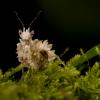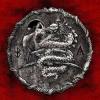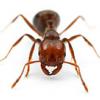The Vendor in question has updated their description on their website, in addition this email message was sent out to all customers who have placed orders!
This email is for everyone who has ordered Pogonomyrmex occidentalis from us in the past week. I want to update everyone on approximately when and how the orders will ship, the state of the ants currently (as they are fast growing and change daily), as well as to clear up any misunderstandings that may have come up in regard to what you’ll be receiving and how they’ve been cared for prior to sending them out.
Shipping and Time Delays
Shipping will begin once we have all the materials needed. (NOTE: You are welcome to pick these ants up immediately, if you are within driving distance). This is because after speaking with the post office we received instructions that it was not quite as simple as putting a label on the box with live insects. Procedure requires labeling, containment, and protection. As this process of shipping out of state without need of a permit is new to everyone, myself included, we’re glad that as far as unforeseen setbacks go, this one was relatively minor. As a result, we have opted to ship them inside rigid PVC pipe, secure on both ends. We are currently looking into the viability of cold packs and depending on the results of the subsequent testing, we may include them in the packaging to ensure your colonies arrive safe and healthy. The big thing we are waiting on is the labeling for the outside of the boxes themselves. I anticipate sometime in the middle of next week to receive these items and begin shipping with first orders.
It will be important for the health of the ants during transit for you and I to communicate regarding shipping conditions and logistics. I will not ship out ants on dates where the destination temperatures are not considered safe for live arrival UNLESS I have spoken with you and you are ready for them to arrive during the day (i.e. you will be home waiting for them, or someone else will). You can (and should!) use the tracking service on www.usps.com with your tracking number you receive with your shipping confirmation email. You can also sign up for text updated on their website as well, so you will be notified when they are dropped off.
Current state of the colonies, at time of writing:
Approximately 50% of queens now have several larvae with tiny eggs. My feeling is by the time the first ones ship out we should be close to seeing pupae, just a few short days from now. They look great and I am posting videos daily on our Facebook group “Tar Heel Ants Interactive Newsletter” showing off these amazing ants! I invite all of you to come and peek at your future colonies. 
Clearing up misunderstandings
Lastly, there may have been a few misunderstandings, mostly thanks to my poor wording on the website regarding success rate of “boosted” colonies. I call them “advanced” but given the different meanings of this word and how it can really be used to describe the same things (colonies in this place) and mean two different things it was a poor choice of a title. I did not want to use “boosted” because; as a show owner with the pleasure of talking to a huge variety of people interested in the hobby, my experience to terms like that will typically draw a blank look in response. “Boosted” means nothing to most everyone not in the hobby already and much of the people I speak with are brand new. I will be the first to admit that this wasn’t as clear as it could have been, and I am grateful for the feedback and the opportunity to set things straight. By advanced I simply meant advanced in stage. Typically, a colony will be a lone queen. Then with eggs, then larvae, then pupae, then workers. In this case they are a step ahead of others that are offered, which I feel would be good to offer as advanced colonies to anyone who might wish to get to the more exciting stages of colony growth rather than just a queen with eggs, which is a very common request. To do this, we had to painstakingly retrieve brood from colonies that were slated to be destroyed as they were on a future construction site, retrieving them one by one.
The boosted colonies are in fact (as most of you know already) created with workers from another colony. The reason for this is threefold.
- First to increase the rate of success for the queen to reach “founding stage” where she has workers of her own. Having been in the community for a long time now, I am lucky to be able to lean on the experience of my friends 8 years of keeping Pogonomyrmex occidentalis, who relayed to me his findings showing a significant increase in success getting past the founding stage. Additionally, I was able to find one research study boosting, as well as consulting a number of entomologists and even more experienced ant keepers on the subject. Generally, the consensus was the same across the board, indicating that this was a good idea.
- Secondly, to allow folks to enjoy these ants immediately! With the new regulations in place, this is a historic step for the hobby in the United States – we can finally all get the same ants.
- By advancing a colony forward a stage in development from just a queen to a queen with workers, you now have the opportunities to see activities you would not previously, and the queen settles down more readily as well (and based on at least one research study, the potential to lay more eggs of her own early on…).
Honestly, it works the way the research we’ve done suggested it would. Not a single queen we have boosted to date has died, and on average, boosted colonies see more success compared to unboosted colonies.
Regarding Care:
I have decided to expand the PDF guide a bit to something more than a care guide. You will all see when it is done and hopefully appreciate the effort that is going into it.
Order changes and requests:
If you wish to change your order from an Advanced Colony to a Queen, just contact us by replying to this email. I am more than happy to accommodate any order changes prior to shipping, as has been my policy for several years now.
Alternatively, if you wish to delay shipping, which only means I care for the ants longer and ship you a colony once they have workers of their own, please let me know and I will adjust the order accordingly. This would mean I would be putting your order on hold for 3 to 4 more weeks before selecting the colony to send to you.
Any other requests or accommodations are welcome (within reason), just drop me a line and I’m happy to see what I can do.
Regarding return policy
For the last 2 years I have had on my website a policy that purchased ants have a 30-day replacement policy. I’ve only ever needed to this once in that time. One of my goals is to provide only the best colonies for purchase by constant feeding, maintenance, and observation of all colonies in our care. These ants are no different. In this situation with Pogonomyrmex occidentalis I am literally giving the best of the best colonies, as the majority of the colonies in my care are under observation for research regarding optimal care. I am using powerful camera equipment to see inside each colony daily to determine health of brood as well as examine behavior. The queens and colonies that are lacking in any way are set aside for research experiments on recovering struggling colonies and queens. Just so it’s clear, we do not sell them. If you have a problem with a queen or colony after you receive them, please don’t hesitate to contact us immediately. The care guide will cover some frequently asked questions but feedback on your experience is integral to improving how we do things. The sooner you let us know you are having a problem (or having a blast also, we love to hear that as well) the sooner we can help resolve whatever problem you may have. Ultimately, my goal is to help you explore and enjoy this hobby that we all care so much about.
Would love to hear back from each and every one of you. Thank you so much for taking the time to read this.
Sincerely,
Mack
Mack Pridgen
Owner, Tar Heel Ants

























